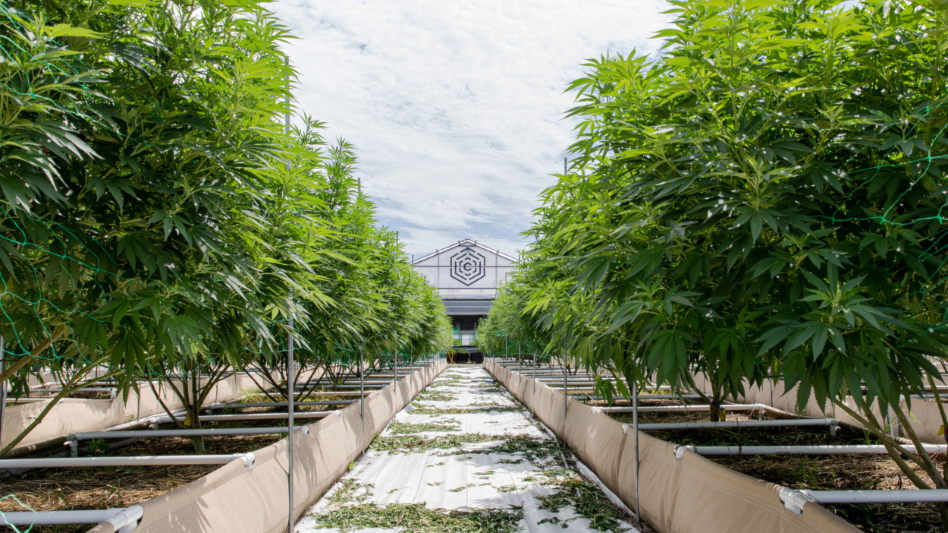Maryland Medical Operators Reflect on State's Adult-Use Rollout
Allison Siegel of CULTA and Hope Wiseman of Mary and Main discuss the state's program and how they are preparing their business for the adult-use rollout.

Maryland is slated to launch adult-use sales July 1 through its existing medical cannabis dispensaries.
Following Gov. Wes Moore signing Amendment 3 into law on May 3, Cannabis Business Times spoke with Allison Siegel, CEO of CULTA, a Maryland-based vertically integrated cannabis company, and Hope Wiseman, owner of Mary and Main, a Maryland-based dispensary, to discuss the state's program and how they are preparing their business for the adult-use rollout.
Into the Weeds
Wiseman and Siegel expressed satisfaction with the regulations established for the state's forthcoming adult-use program. They specifically mentioned that the legislators took the time to develop rules that address essential issues such as social equity, medical cannabis patients, sales tax and more.
"It was a very important bill for the legislators to get approved so we can have legalization by July 1,” Siegel says. “First of all, it needed to be structured with a goal to get cannabis products out of the unregulated market or illicit market with a plan; and on top of that, with a plan to right the wrongs of the harm due to the war on drugs, which is taken to specific communities. I personally feel our legislators took both of those to heart, and they really didn't look at this legislation as a profit center for the state."
Maryland will host two licensing rounds to issue adult-use cannabis business licenses. The first round is expected to launch Jan. 1, 2024, and will be dedicated to social equity applicants.
The measure also establishes a social equity office that operates separately from the Maryland Cannabis Administration, which oversees the medical and adult-use markets. The social equity office will provide small business consulting and free technical support to help increase industry participation from those in underrepresented communities.
Moreover, the state set aside $80 million to support social equity cannabis businesses and has established "loan default provisions to protect banks that invest in entrepreneurs involved in the social equity program," Cannabis Business Times reported.
"We're coming out of prohibition, so things are not going to be a free market open for anyone to do whatever they want, and I think that this legislation is still pretty inclusive when it comes to making sure that it's an equitable program, that there's diversity in the program, [and] that the tax revenue is going to the people who deserve it," Wiseman says. "I think Maryland is doing it right from that perspective. Also, they're not overtaxing, which sometimes makes it difficult for the program to be successful."
The measure places a 9% sales tax on adult-use sales, and the tax revenue generated from the adult-use market will be used to cover the cost of overseeing the cannabis program. The state would distribute additional funds to other areas. Still, the measure requires that 35% of those extra funds are dedicated to a Community Reinvestment and Repair fund that would reinvest in communities disproportionately impacted by the war on drugs, CBT reported. Municipalities will also receive a portion of the tax revenue collected in their counties.
"While there will be a tax, they really did their research and took pieces of other state's programs that worked, and then they ensured that we didn't copy those that aren't working," Siegel said. "So, I'm really thankful, pleased, and impressed with how our legislators went about this."
Market Challenges
The measure would allow on-site consumption lounges, but smoking would be prohibited, which could present a challenge for operators, Siegel says.
She says another challenge for existing medical operators, specifically, is the fee to convert their business from medical to adult-use. On July 1, the state's existing roughly 100 medical cannabis dispensaries will be able to convert their licenses to serve the broader adult-use market. Still, according to the measure, they must pay a conversion fee, which will vary depending on each business's gross revenue for 2022.
Dispensaries will have to pay 8% of their gross revenue for 2022, while growers and processors will have to pay 10%, according to the bill.
"Based on the last 12 months of significant [price] compression … along with 280E, making the tax burden, especially in dispensaries, as high as 70%, I think finding the cash to pay this fee is going to be very tough for a lot of operators," Siegel says.
Wiseman says she thinks it will take time for Maryland to expand its brand and product portfolio.
"People are used to, when they think of recreational, they often think of West Coast markets like Colorado and California, and those markets have a lot of variety and different brands. I think Maryland will take some time to ramp up on all the different brands and different things,"
Wiseman says. "I feel like right now the market is heavily driven by price, not as much by brands or actually, I wouldn't even say driven really by the quality of the product. I think that that will change going into adult use."
Wiseman anticipates brand and product quality to be highly important to adult-use consumers and says operators will have to shift their mindset.
"It's not so much about these discount wars that we've been in," she says. "I feel like we've been in this race to the bottom, and now that adult-use is here, you just have a much wider customer base. I think we're going to see brands emerge and more experiential marketing, and I think you're going to see cannabis come more to the mainstream in Maryland."
Preparing for the Launch
Currently, on the retail side, CULTA is working on implementing processes to mitigate the anticipated increase in traffic flow and expanding its workforce.
"I was not here when medical started, but I know that there were times that there were reports, not just from CULTA, but from many dispensaries, of traffic, lines of people, parking lots jammed up, [and] we really want to try not to frustrate the potential customers as well as the other businesses around us," Siegel says.
On the grow and processing side, the company is working to build up as much supply as possible to meet adult-use demand.
"We really want everyone to have access to CULTA’s high-quality flower and lab products," Siegel says. "So, we're just doing the best we can. We can't make the plants grow faster or expand our canopy quickly, so we have to do what we can with what we have. And so that's really our main focus."
Mary and Main is also working on processes to alleviate the increase in traffic flow, which Wiseman anticipates will be quadruple what the dispensary currently sees.
"We're really looking at improving the customer experience, even when we have more volume. Our store is a heavy educational store. We have customers that come in and spend 10, 15, 20 minutes with us, and we just have to learn how to maintain that," Wiseman says. "We want you to feel like you can come in, talk to us, ask questions, and really learn about cannabis.
But at the same time, we want to be able to quickly serve everybody and give them the retail experience they expect when they enter the store. So, that's been our focus, just training everyone and creating the space in our store for different types of customers, those who really want to learn, those who know what they want, and [those who] want to come in and out and have a quick and fast and safe experience."
CULTA and Mary and Main are also heavily prioritizing their medical patients during the process of converting to adult use to ensure they have similar, or even better, experiences than before the adult-use launch.
Looking Ahead
Looking ahead, Wiseman says the company is working to create high-quality products and getting the products on shelves in Maryland through its parent company, WISECO, which has a manufacturing license in New Jersey.
“WISEOCO’s goal is to be able to create products and get them on shelves. So, right now, we're really focused on Maryland and going as deep and wide as we can. We want to create supply chain opportunities that include other people," Wiseman says. "We care more about just creating that supply chain and creating those experiences and those products that people can really enjoy. I know everyone looks at us as retailers, and we have become really good at that, but we want to partner with other people that want to be retailers."
As for CULTA, in the short term, the company's primary focus is to continue producing high-quality, premium products in Maryland.
"We pride ourselves on not only growing very sought-after cannabis but finding partnerships that also have sought-after genetics or other products, as well as finding the right third-party products in our dispensaries to offer to our customers or patients," Siegel says.
Share This Story, Choose Your Platform!




